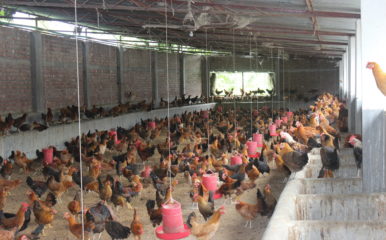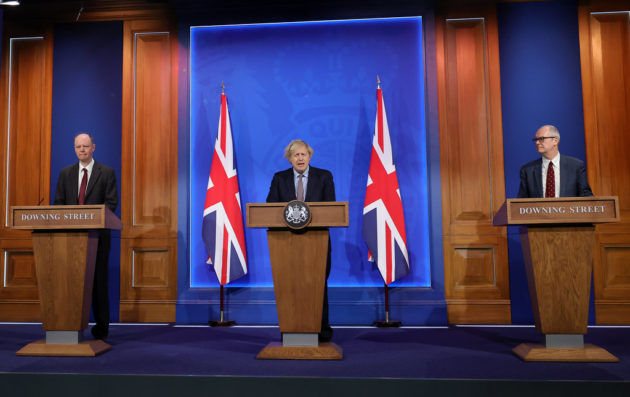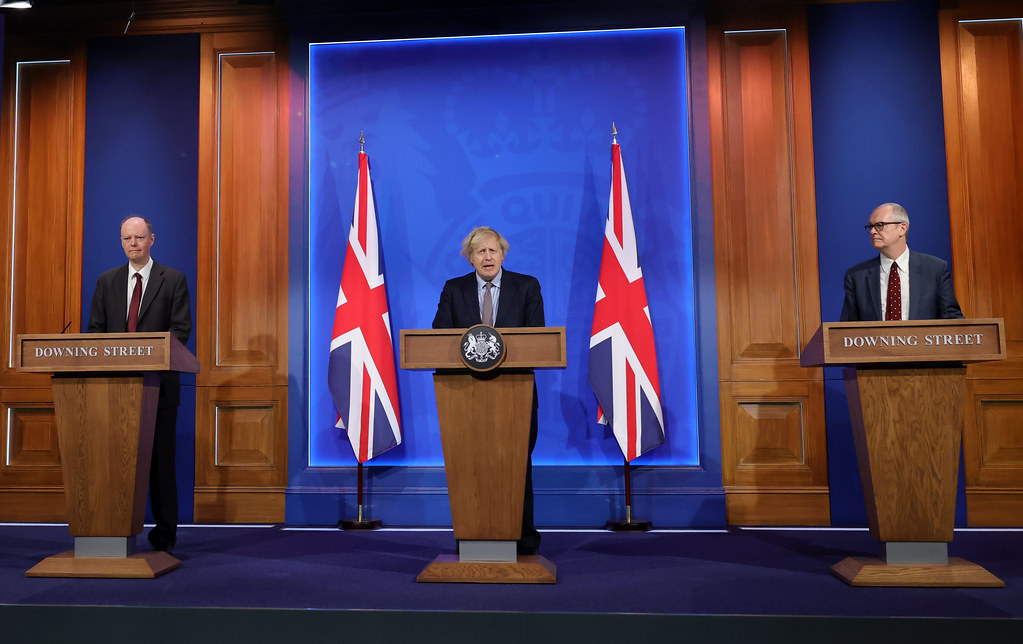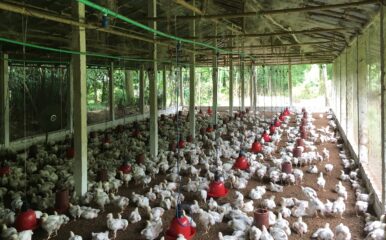
Communicating COVID with ‘just a quick trip to the TV studio …’
Published on 25/11/2021

Andrew Parsons / No 10 Downing Street

The UK Government’s response to COVID-19 did not provide a good guide to how such events should be handled. As a ‘fourth wave’ begins to develop across Europe, and no doubt across other parts of the world, now is a good time to reflect on what – if anything – we have learned about managing such ‘whole system events’.
We have had mixed messages, poor leadership, leadership in the wrong direction (see I Alone Can Fix It, a detailed portrayal of Trump’s putting his political ambitions way ahead of public health) and little evidence of good preparation anywhere. Indeed, the UK’s National Audit Office concluded of the UK’s effort at pandemic management:
“This pandemic has exposed a vulnerability to whole-system emergencies – that is, emergencies that are so broad that they engage the entire system. Although the government had plans for an influenza pandemic, it did not have detailed plans for many non-health consequences and some health consequences of a pandemic like COVID-19. There were lessons from previous simulation exercises that were not fully implemented and would have helped prepare for a pandemic like COVID-19. There was limited oversight and assurance of plans in place, and many pre-pandemic plans were not adequate. In addition, there is variation in capacity, capability and maturity of risk management across government departments.”

Lockdown and conspiracy theories
In early 2020, as the first wave grew inexorably, UK Prime Minister Boris Johnson presented daily tallies of infections, hospitalisations and deaths. Thus, at an increasing tempo, there occurred a switch from ‘normality’ to ‘lockdown’, masks and social distancing. This was shadowed by a background wave of conspiracy theories, incomprehension, uncertainty and fear.
Suddenly, terms such as ‘R zero’, ‘epidemic curve’ and, yes, even the word ‘epidemiologist’ became part of common chat.

In Belgium things were similar – but not the same. Our Hub colleague Professor Marius Gilbert, an adviser to the Belgian Government, was often on TV and cited in the press. Indeed, he became something of a media star. An old friend even started producing t-shirts bearing his picture with the slogan, ‘We must imagine a new way of life!’
Experts and politics
This message points to perhaps the major lesson of the pandemic, as does Marius in the final section of his book. In this, he points out that how we do politics, the role of experts and their knowledge, how to value everyday knowledges, the limits of ‘common sense’ and how this pandemic event links to other major issues (further pandemics, what we eat, climate change and what we do every day – indeed our ‘way of life’) are all thrown into relief and require not only reflection but also new approaches to policy and policymaking.
This pandemic is not the only (and certainly not the last) crisis. That is one of the main lessons of this didactic and very serious book, which is also at times funny and reflectively ironic,
Here the researcher turned ‘expert’ promising to take his daughter out for dinner one evening, tells her that he will ‘just’ take a quick trip to the TV studio to appear on the main evening newscast, and … then? Well, things didn’t turn out as planned. He was there for three hours, the sole expert holding the fort with the programme’s host, trying to fill the slot. In the meantime, while the Belgian Government delayed issuing its communique about how to respond to the pandemic, his hungry daughter no doubt was drumming her fingernails on the dinner table.
Hence the title of his book, which may be translated as ‘Just a quick trip to the TV studio’.
Science communication
The book combines serious and sustained efforts to communicate the basics of epidemiology more widely, driving home the lesson that geometric progression of infection is something to be understood and taken seriously at all levels of society.
Thus it is that with a light touch he explains what an S-curve means in practice for the rate and size of pathogen transmission, how this relates to the (now famous) ‘R zero’ and the confusions which are possible when a prime minister suggests it may be a good idea to take up kayaking as a solitary hobby during lockdown. Not a lot of people in Belgium own kayaks!
Marius Gilbert examines the paradox of politicians’ search for certainty and simplicity – and scientists’ awareness of subtlety and difficulty, even the absurdity of trying to develop general rules for complex real-life situations. Neither does he neglect how such a ‘whole system event’ inevitably results in people taking refuge in conspiracy theories, in the main not through malice but rather to simplify novel, uncertain and frightening events.
It is here that so-called ‘common sense’ can be a trap. Marius examines people’s difficulties in understanding how expanded testing and greater knowledge of the apparently simple idea of ‘numbers of people infected’ can result in incomprehension and conspiracy – something which was very apparent in the UK. And how these numbers may confuse the public as single descriptors of ‘the epidemic’ – of which of course there is no single descriptor.
Science and uncertainty
In so doing, he provides important examples, not least when he draws up a kind of balance sheet. On one side he lists what politicians want to know, what to tell ‘the people’ (who of course are not a single entity); on the other, he lists how science works, what it can say and how it is always – by its nature – uncertain, dealing in probabilities.
And the balance? As we know, simple messaging and scientific knowledge are largely incommensurate. More is required, not least, inputs from the social sciences and the humanities, and indeed from ‘the people’.
Many areas of expertise impinge on managing such events and in planning for the future. More granularity and consultation are required in our understanding, and the commonly deployed military metaphors are not the best guide (a point explored in some detail in Alex de Waal’s new book New Pandemics, Old Politics: Two Hundred Years of War on Disease and its Alternatives.
Marius Gilbert writes with a degree of modesty, underpinned by a strong consciousness of how strange it is that he – a spatial epidemiologist, a serious academic – was thrust into the public eye and asked to advise his government, talk on radio and TV, and to communicate his expertise and insights honestly and as directly as possible.
There can be few greater tributes to an author writing and speaking on such a serious subject than the little card which Marius received from a certain Marie-Antoinette and her husband Joseph, a couple in their 80s. They sent him message which he describes as “written with infinite kindness to wish me all the best and to tell me that my reassuring tone makes them feel I am a little part of their family”.
However, as very recent civil unrest in Belgium, the Netherlands, Austria and elsewhere in Europe shows, the social and economic effects of a sustained ‘whole system event’ are very difficult to predict …


